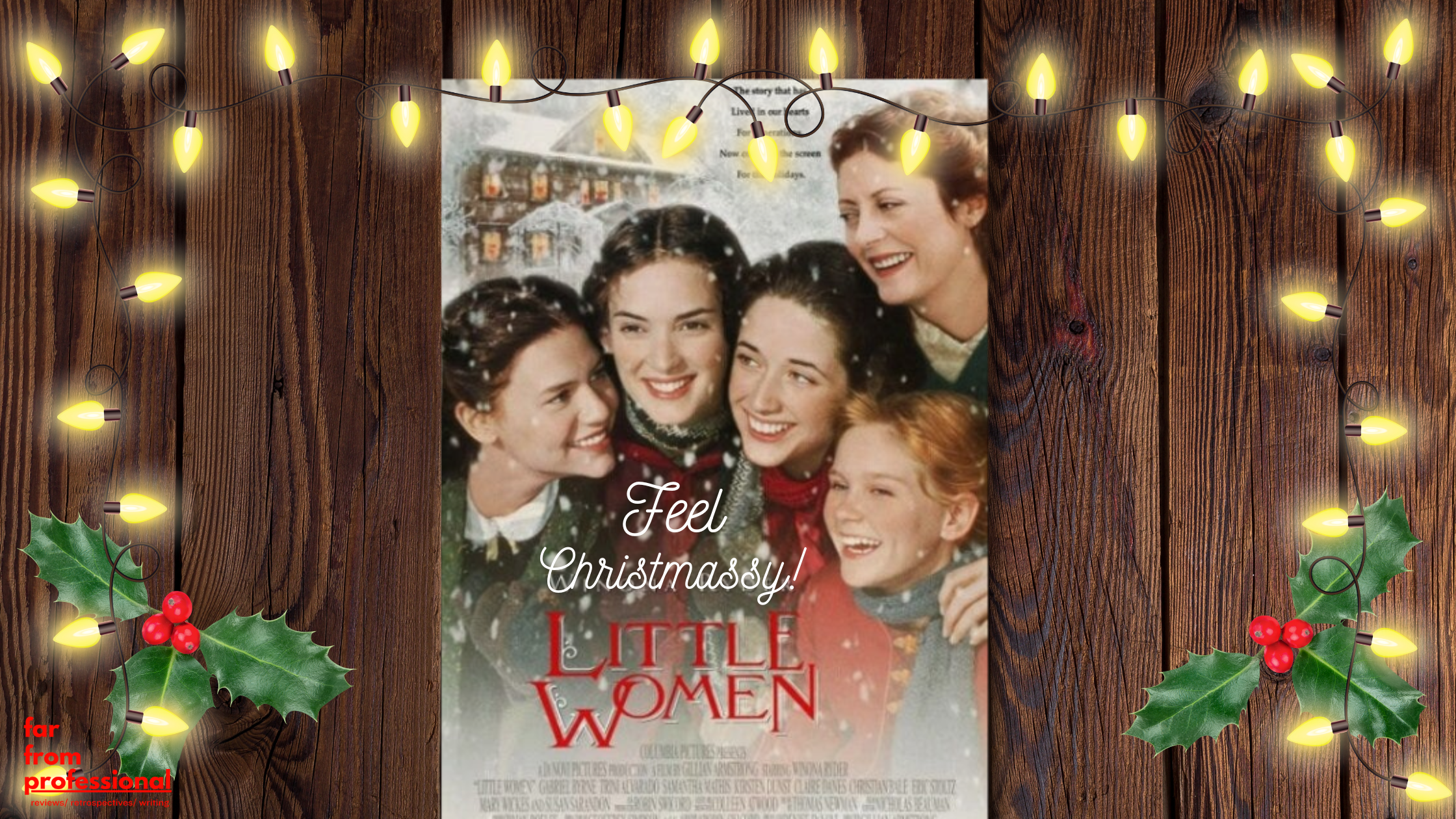Not So Little Women
Little Women. Columbia Pictures (1994).
I love watching Little Women during the holiday season because of its Christmassy feel and the strong female characters in this wonderful movie.
have never read Louisa May Alcott’s famed novel Little Women. I guess I should, out of respect, since she was one of the first female American writers to achieve literary recognition. The story is about a family, the March’s, and follows their life story through the eyes of Josephine “Jo” March, the second eldest daughter. Although the novel is fiction, Alcott based many of the characters and events on those of herself and her sisters.
Little Women has been transformed into a movie seven times! Not to mention that there is a stage version, and a version for television. The movie version that I fell in love with is the 1994 adaptation, starring Winona Ryder, Susan Sarandon, Claire Danes, and others. I’ve mentioned before that I was obsessed with Claire Danes when I was a teenager, so she was, of course, the big draw when I first saw the film, which was a couple of years after its theater release.
I am intrigued by period piece movies, especially those that take place in America. Maybe it’s because my dad is a big American history buff, maybe it’s because one of my aunt’s used to participate in Civil War reenactments and would let me dress up in her reenactment costumes when I would go visit her, or maybe it’s just my fascination with life in a completely different era in this country than the one I landed in, either way, I like these types of movies.
Add that to the fact that Little Women is a female-based movie with stories about first loves, coming of age, contains a strong female protagonist that goes against the grain, as well as the complicated relationships amongst sisters, and I was hooked from the first time I saw it.
Ryder, who plays Jo, is excellent in this role. Jo is the antithesis of how young women should act during this era, and I love that. She needs to be feminine, which means docile in the 1800s, but she is outspoken, smart, unwilling to bend to the gender norms, and is a total dreamer. She wrangles her sisters into putting on plays in their attic and playing rambunctiously in the snow, amongst other things ladies shouldn’t be doing.
Jo displays a longing to be more than just a girl, she wants to be a writer and travel the world, she wants a life that was not offered to women during that time. She feels the restrictions placed on her, and other girls, is wrong and unnecessary. She freely expresses these sentiments, which is partially why her neighbor and friend, Theodore “Teddy/Laurie” Laurence, depicted by Christian Bale, falls head over heels for her. And even though Jo feels some sort of way for him, which isn’t wholly romantic, she has to turn down a life with him because of this desire for more than marriage. Ryder, for her part, navigates this role masterfully.
The matriarch of the family, portrayed by Sarandon, called “Marmee” by her daughters, is a noble woman. She is trying to instill in her girls important virtues, but also wants them to think for themselves, which was relatively novel during this time. Yes, she wants her daughters to learn how to cook, clean, mend clothes, and take care of the womanly duties of the household, but that’s not all she cares about. Marmee is both strong and well-spoken about women’s and societal issues, but has a quietude about her.
She makes sure that her girls understand the importance of looking out for those that are less fortunate than her family, the power of being educated, and that they treat each other and those around them with kindness and respect. Sarandon’s acting in this role is quite good. In her period piece clothing, she embodies a forward-thinking woman while still maintaining the norms that she was destined to fulfill.
Amongst all of the feminist themes is a beautifully told story. There are funny moments, such as the time Jo burns off a chunk of hair from her sister Meg’s head as she’s trying to help her get ready for a dance. It has moments of true heartbreak, like when Beth, another sister, dies at a young age from a long-lasting illness, and so much more.
Every time I watch this movie, I cry. I also laugh, and feel my heart race during the couple of tense moments. I feel grateful that Alcott wrote this story about little women rebelling in their little ways during an era where they were expected to conform. Mostly, though, I feel amazed that this tale from centuries ago has been retold many times over, and that it can still strike a chord.


